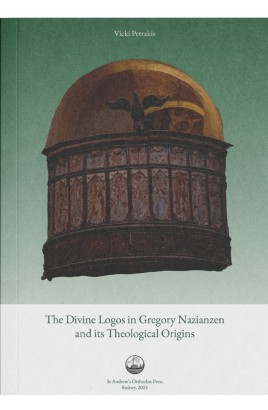The Divine Logos in Gregory Nazianzen and its Theological Origins
This book is a study of the 4th century CE Cappadocian Father and Saint, Gregory the Theologian, or as he is otherwise known, Gregory Nazianzen and his doctrine of the divine Logos. It investigates how the Saint uses the term ‘logos’ in its various nuances, to reference: Jesus Christ (ch. 2), the scriptural word (ch. 8), and the divine logos as the creative, substantive, and formative image of God within (ch. 5). These three stands evidence the Saint’s Logos doctrine centred on Christ–who is the nucleus of one’s theological identity and being–and the scriptures, Christ’s living manifestation. The book explores Gregory’s doctrine of the Logos rooted in his Christian hermeneutics, that nurtures the spiritual formation of the human person through the paschal Lord, who is the incarnate Logos (Reason) and the enfleshed Scripture (Word). In making these connections, the book also captures the coherence of Gregory’s thought, exposing the Saint’s Christology, Trinitarian theology, and human theological anthropology. His Trinitarian theology–in which the Godhead is at the forefront of Christ’s humanity and one’s theological identity–is thus, a constant hallmark within the aforementioned chapters.
The book also undertakes a historical examination of the ‘logos’, for identifying the theological and philosophical content from which Gregory’s logos literature was disseminated from. It investigates the biblical antecedents of John 1:14, for understanding Gregory’s own theological inspiration of the enfleshed Logos acquiring a human sarx and nous. It traces the development of the notion of Being from the Pre-Socratics to the Stoics, to explore the philosophical relevance of the ‘logos’ for defining one’s rational content, as well as examine the logos theology of Justin Martyr, Clement of Alexandria, Origen, and Irenaeus of Lyons to discover how they captured Christ as Reason and as the image within the rational human soul. Finally, it explores the deep connection between words and their significance from Greek philosophy, for revealing divine truths manifesting in one’s soul, before turning to the early Greek Fathers–Gregory’s immediate predecessors–who identified Christ as the enfleshed Word, to examine how one grows and nurtures a relationship with Christ through the living Word, the scriptures.
Write a review
Your Name:Your Review: Note: HTML is not translated!
Rating: Bad Good
Enter the code in the box below:



